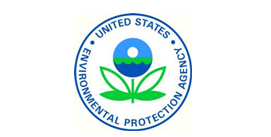More Rules Over Toxins Necessary
October 30, 2012
Re-printed from – The Daily Progress
October 29, 2012
 Seventeen environmental groups are petitioning the U.S. Environmental Protection Agency to bring the hydraulic fracturing industry into conformity with the reporting requirements of the Toxics Release Inventory.
Seventeen environmental groups are petitioning the U.S. Environmental Protection Agency to bring the hydraulic fracturing industry into conformity with the reporting requirements of the Toxics Release Inventory.
Most other energy industries, including coal, must report toxic releases. The oil and gas industries are exempt.
The use of toxic chemicals forced underground to help make oil and gas deposits accessible for extraction has rapidly increased with the rise of the hydraulic fracturing, or “fracking,” industry. Drilling in relatively high-population areas such as western Pennsylvania and New York, amid geologic structures that can allow contaminated water to flow relatively long distances to become drinking water for neighbors, makes fracking a potentially risky proposition.
It’s that potentiality that petitioners want the EPA to explore.
Because the oil and gas industries don’t report all the chemicals they use in their operations, regulators find it difficult to trace contamination back to industry sources. Once contamination has occurred, researchers can’t even establish a baseline for trace amounts of chemicals that might otherwise have been found naturally in the environment.
However, research has shown that some of the chemicals that have been used in the past are known carcinogens. And it is suspected that the industry still may be using carcinogens, which might explain why it is reluctant to release lists of those chemicals. Fracking companies say the chemicals are proprietary information and that reporting them to the Toxics Release Inventory could reveal business information that would damage their competitiveness.
Of course, exemption from reporting rules now gives the oil and gas industries a competitive advantage over coal, for instance. Requiring the same level of oversight for these industries seems a fair approach.
Advocates of extending reporting to the oil and gas industries also point out that chemicals used by the industry may pollute air. And water contamination can affect streams as well as groundwater.
We are as concerned as anyone about overregulation. But given the severity of the issue, this extension of regulation is necessary. We’re not talking about some insignificant detail here; we’re talking about the possible release of carcinogens. This kind of damage is precisely what the Environmental Protection Agency was intended to confront and prevent.
Closing the reporting loophole would help protect the environment, help protect human health and help level the competitive playing field.



